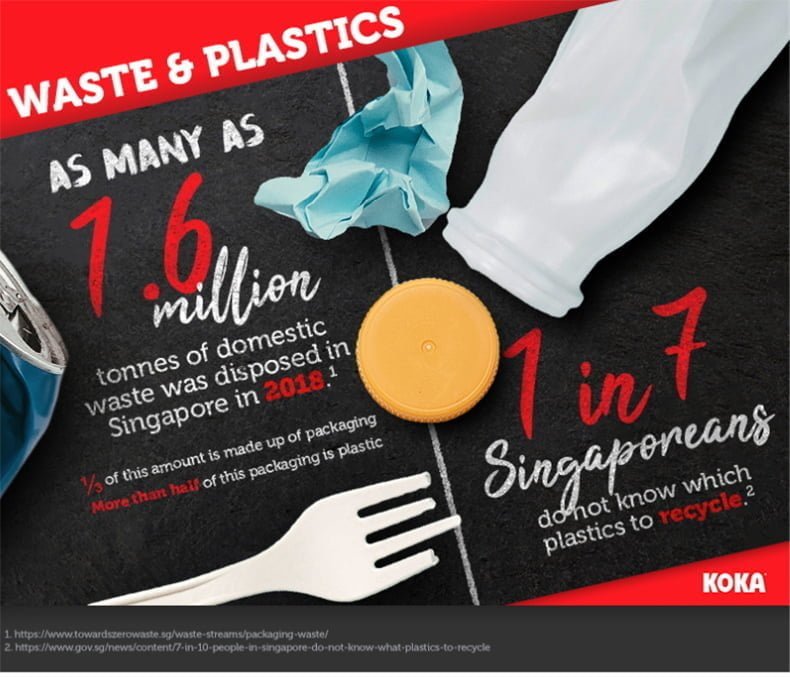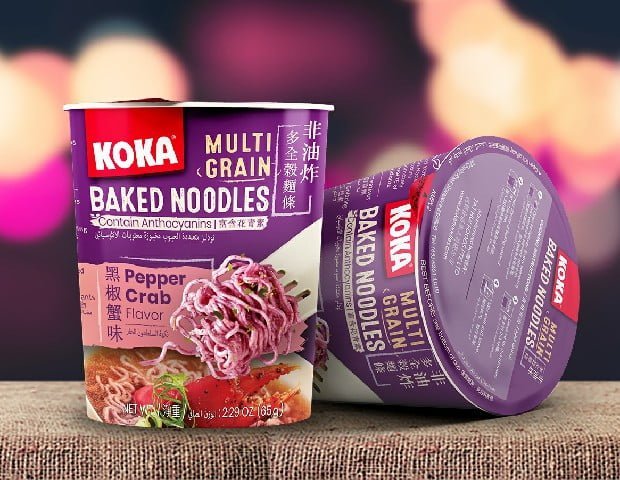Singaporeans Continue to Choose Cup Noodles

Popular for its taste, cost and convenience, cup noodles are a staple snack for many Singaporeans. And while you may think the instant noodle couldn’t get any better – think again! We’re on a journey to make cup noodles reflective of today’s positive attitude toward a cleaner and greener earth. With environmental attitudes changing as we become more aware of how human waste impacts the environment, more Singaporeans are making a conscious decision to choose eco-friendly products – including snacks. Minimizing packaging waste is one of the key ways of protecting our environment, and it all begins with small changes. Enjoying cup noodles is a daily ritual for most of us, and one which can be made with a more active environmental awareness. Knowing how our food and recycling habits can impact our environment helps us to achieve our collective pursuit towards a better world.
THE ROLE OF NOODLES IN SINGAPOREAN CUISINE

Singaporeans are noodle crazy! More than 100 different kinds of noodles are produced in Asia, with the continent home to the largest instant noodle market in the world.
As many as 280 million servings are eaten every day across the world, making instant noodles a popular choice for people of all walks of life. In fact, worldwide instant noodles in a cup are eaten by 100 million people a day. In 2018, there were an estimated 103.6 billion servings of instant noodles, 130 million of which were served in Singapore.
However, the real love for Singaporean food lovers isn’t just the noodles themselves, but the role that food and mealtimes play in bringing people together. Meals in Singapore are a time to relax and socialise, and play a vital role in community engagement. Hawker culture in Singapore celebrates fresh, tasty foods where people can come together and appreciate the confluence of foods – especially noodles – from all over Asia. And while many Asian countries are known for their rice production and delicious rice dishes, many Asians are now replacing their diets with wheat. In fact, more than 50% of the wheat consumption in the region is used in noodles, with wheat noodles growing in popularity as a tasty and healthy option containing more fibre content and natural goodness.
THE IMPORTANCE OF RECYCLING AND WASTE IN SINGAPORE

In Singapore’s pursuit for a year of zero waste, attitudes toward single-use plastics and recycling are changing. Singaporeans, on the whole, have pro-environmental attitudes and are realising the positive impact and importance of recycling. This is promising since the startling figures from the National Environment Agency (NEA) show that more than 90% of the waste collected in Singapore is incinerated and less than 10% ends up in its sole landfill. This isn’t a sustainable practice, and it means that all of our resources are going toward the construction and the running of more incineration plants. Recycling helps ease this burden, and the simple act of recycling an aluminium can or glass bottle can save 95% and 30%, respectively, of the energy used to make new ones.
Unfortunately, 7 in 10 Singaporeans do not know which plastics to recycle. This may be why, despite Singapore’s measures to promote recycling, people are still struggling to curb wastage. Waste products and single-use plastics such as plastic bags and even noodle cups pose a significant challenge, as they cannot be recycled. Of the 1.6 million tonnes of domestic waste disposed of in 2018, one-third is made up of food packaging while more than half of this packaging is made of plastic.
CHANGING CONSUMER BUYING HABITS

Young Singaporeans are leading the change when it comes to environmental awareness. Far from the generational stereotype which describes them as being materialistic and lazy, new studies have found that Singaporean millennials actually care more about society, family and self-growth than they do about tangible goods. In Singapore, consumers are displaying a keen commitment to being more socially responsible, with a significant 6% increase in 2015. This trend has continued to climb as more millennials consider sustainable products and goods tied to health & wellness more important than disposable goods.
Southeast Asian consumers are the most willing globally to pay more for sustainable products, with eight in 10 consumers (80%) preferring to buy from companies who are committed to creating a positive social and environmental impact. This applies to food products too, as young people are favouring products that are made with fresh, natural and/or organic ingredients.
SINGAPOREAN PERSPECTIVES ON THE ENVIRONMENT

When it comes to choosing sustainable food products, it’s important to also consider its packaging. Singapore has lost 90% of its forests since 1980 due to deforestation. A lot of which is driven by demand for consumer goods which can also encompass food packaging and labels. Because of this, there’s a growing consensus among the public that businesses should play a larger role when it comes to safeguarding the environment. More than 50% of Singapore consumers and half of all shoppers in the Asia Pacific region believe that companies should ensure that their supply chains do no harm to the environment.
One of the measures KOKA is taking to reduce its environmental impact is by using sustainable bamboo in the cup packaging of our special new Multigrain Baked Noodles with Purple Corn. Bamboo is easy to grow and does not require replanting after harvesting. Furthermore, there are over 1,500 species of bamboo across the world, allowing manufacturers to locally source bamboo for their packaging instead of promoting the deforestation of our ecosystem. Bamboo packaging is biodegradable and compostable, therefore making it eco-friendly. Furthermore, bamboo rarely flowers and seeds – only about every 100 years or so. This gives manufacturers the ability to reduce transportation and carbon footprint as it requires less land and resources to grow.
Giving Singaporeans the option to choose food products using ethical bamboo helps further promote sustainable practices.
KOKA MULTIGRAIN BAKED NOODLES IN AN ECO-FRIENDLY CUP!

KOKA is working towards improving the sustainability of their food packaging by introducing an eco-friendly cup. As environmental awareness among Singaporeans grows, it’s important to do what we can to ensure our products are aligned with ethical, sustainable practices. It is a small step but one we’re excited to take in an effort to change our world for the better. We invite you to come along on this journey with us and lead the change toward a more sustainable future.
Discover the delicious goodness of Singapore’s very first Healthier Choice Cup Noodles – 100% baked (not fried) and packed with the natural goodness of whole oats and whole wheat, and high in antioxidants thanks to the anthocyanins in purple corn.
